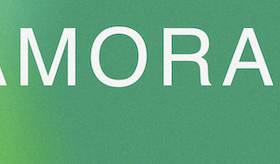In terms of cultural and dating relevance, we can find commonalities across the Middle East and North Africa. This region, commonly referred to as MENA, is culturally diverse with varying attitudes towards dating and relationships across different countries. However, a common thread across many MENA countries is a conservative approach to dating, with traditional gender roles often emphasized. In many countries, relationships outside of marriage are not socially accepted, and dating may be seen as a Western cultural import.
In some MENA countries, dating is largely restricted to arranged marriages where families play a key role in finding a suitable partner for their child. In other countries, dating may be possible, but couples may be expected to keep their relationship private and avoid public displays of affection. In more liberal countries such as Tunisia and Lebanon, dating is more accepted, but social and religious norms still play a role in determining how relationships are approached.
There are some countries, like Morocco or Tunisia, which have historical connections with Europe and tend to gravitate closer to their cultures. On the other hand, there are extremely regulated areas like Iran where dating is not publicly tolerated but people still do.
The MENA region is quite interesting and complex when it comes to dating and romantic relationships.
Is the Middle East and North Africa gay friendly?
Cultural attitudes towards same-sex relationships in the MENA region are generally more conservative than in many other parts of the world. Same-sex relationships may be illegal or minimally highly stigmatized.
Thus, the MENA region is generally not considered to be very gay-friendly, with many countries having laws criminalizing homosexuality or at least societal attitudes that are hostile towards the LGBTQ+ community. There are, however, some countries in the region that are relatively more accepting, such as Israel, where homosexuality is not illegal and there is some level of LGBTQ+ visibility and activism. However, even in these countries, LGBTQ+ individuals may still face discrimination and harassment on a personal level. It is important to exercise caution and awareness of local laws and customs when visiting or living in the region as an LGBTQ+ person.
Overall, the gay dating culture in the MENA region is complex and shaped by a variety of social, cultural, and legal factors.
Most popular dating apps in the Middle East and North Africa
Due to variations in legal and cultural contexts in the Middle East and North Africa, dating apps can face a range of challenges, including censorship and a conservative attitude towards dating. When we think about dating apps or website in MENA we should think about them in two categories: conservative dating and global dating.
On the conservative dating side, these can be typically seen as religious-based dating. This kind of dating is more easily tolerated by families because of the fact that it is tied to culture. There are dating apps for Muslims, Jews and Christians alike. Here are a few top dating apps or sites, specifically focused on Middle Eastern culture:
- Muslima: a dating app specifically designed for Muslim singles looking to find a partner for marriage. It is particularly popular in conservative Muslim countries such as Saudi Arabia and Iran.
- JDate: A dating app designed specifically for Jewish singles, allowing them to connect with other Jewish individuals.
- Muzz (formerly MuzMatch): another dating app specifically designed for Muslims, with features such as the ability to include a chaperone in conversations with potential partners. It is popular in the Middle East and North Africa, particularly among younger Muslims looking for a more modern approach to dating while still adhering to religious traditions.
- JSwipe: is a popular dating app designed specifically for the Jewish community. It was launched in 2014 and operates similarly to other dating apps, with users swiping through potential matches and messaging each other if they mutually express interest. The app is particularly popular in Israel and the United States.
There are other dating apps such as Ishqr, Salaam Swipe, Helahel, Siberalem, Pembe Panjur and Esync which are regionally focused on either religion or marriage-focused connections.
On the other hand, some people in the Middle East are more open to using international dating apps. These apps may be appealing because they draw a wider audience or to meet people outside of ones community.
- Badoo: a dating app that offers users the ability to filter potential matches by location, age, interests, and more. It has a large user base in the Middle East, particularly in Egypt, Saudi Arabia, and the UAE.
- Tinder: although it can be more difficult to use in the Middle East due to conservative attitudes towards dating, Tinder remains a popular app in the region, particularly among younger people.
- OkCupid: a dating app that offers users the ability to answer a series of questions to create a more detailed profile, and uses algorithms to match users with compatible partners. It has a smaller user base than Badoo or Tinder in the Middle East, but is still used by many.
Dating culture by country in MENA
| Armenia | Azerbaijan | Algeria |
| Bahrain | Djibouti | Egypt |
| Georgia | Iran | Iraq |
| Israel | Jordan | Kuwait |
| Lebanon | Libya | Morocco |
| Oman | Palestine* | Qatar |
| Saudi Arabia | Somalia | Sudan |
| Syria | Tunisia | Turkey |
| United Arab Emirates | Yemen | Western Sahara* |
*Palestinian Authority.
**While not an officially recognized country, Western Sahara is currently managed by Morocco.



